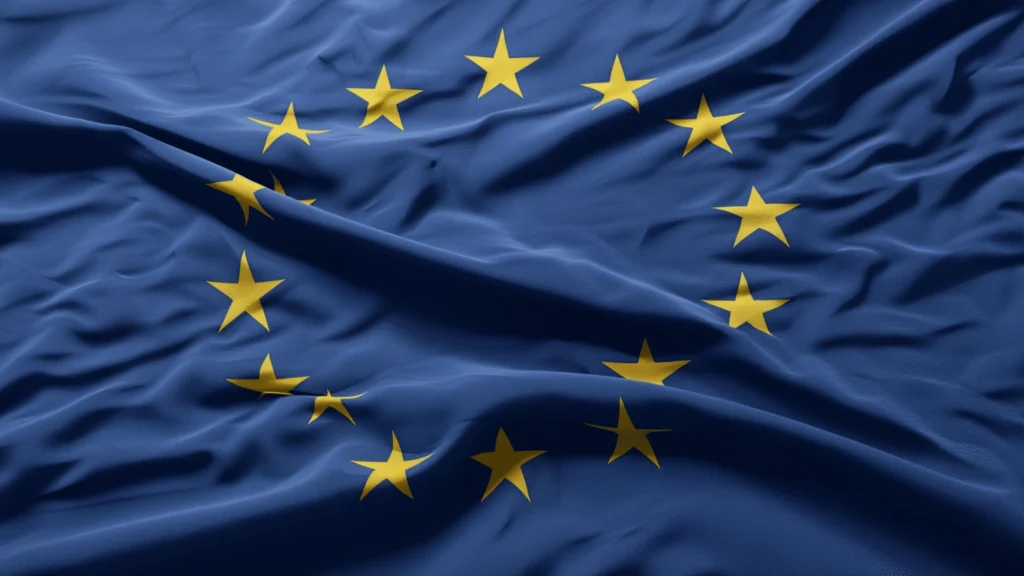Germany, well-known for its booming economy, has been in the dynamic market of CBD products since 2017. As Germany is Europe’s largest economy, the legal status of CBD oil in Germany is of particular interest to those looking to enter the CBD market. CBD is legal in Germany under both domestic law and EU regulations. The Federal Institute for Drugs and Medical Devices (BfArM) states that CBD products with less than 0.3% THC can be used for industrial or scientific purposes.
Those interested in the German CBD market should note that the evolution of cannabis laws in Germany implemented in 2024 reflects a broader European trend towards the acceptance and regulation of not only cannabis, but also CBD products, making it a promising region for business. As the industry grows, so does the opportunity to contribute to and benefit from Germany’s respected tradition of medical cannabis and CBD products.
Overview of cannabinoid legality in Germany
In Germany, the legality of CBD oil aligns with the broader European Union guidelines, which permit the sale of non-food CBD products containing less than 0.3% THC. This threshold ensures that CBD oil in Germany can be sold with only a few restrictions, provided it adheres to the specified THC content. This development reflects Germany’s proactive stance in integrating EU cannabis regulations while also pushing forward with national reforms to expand the legal use of cannabinoids further.
Currently, the German national parliament has revised the country’s cannabis laws, legalizing recreational cannabis use for adults, suggesting a shift towards more liberal personal use policies. As Germany continues to advance its cannabinoid policies, the potential for growth in the CBD market remains serious, ready to set examples in the European cannabis industry.
Legally approved cannabinoids in Germany
Germany’s attitude on CBD and even the most popular yet psychoactive cannabinoid, THC, reflects a progressive acceptance. Germany recognizes the potential of CBD and other cannabinoids within the framework of their national drug laws and has taken steps to integrate this understanding into their legal system, which is evident in the relatively straightforward legal status of CBD oil, other CBD products and cannabis in Germany. Let’s take a closer look at the most popular and legally approved cannabinoids in Germany.
Is CBD (cannabidiol) legal in Germany?
The legality of CBD oil in Germany marked a significant turn on March 3, 2017, following a change to the country’s narcotics law. This important change established a legal foundation for the trade and use of CBD products in Germany. The Federal Institute for Drugs and Medical Devices (BfArM) clearly states that CBD products in Germany can be traded for commercial purposes.
A crucial aspect of this legalization is the restriction regarding the hemp (Cannabis sativa) used in the production of CBD products in Germany. According to German law, the hemp must be cultivated from certified seeds sourced within the European Union (EU). This ensures that the CBD is extracted from hemp that is legally grown, containing no more than 0.3 % THC, adhering to the most EU standards.
THC regulations: what you need to know in Germany
In 2024, Germany joined Malta and Luxembourg as the third European Union country to legalize cannabis, whose main ingredient is THC, for personal use. This legislation allows adults to possess up to 25 grams of cannabis for recreational purposes and cultivate up to three plants per person in Germany.
Cannabis use in Germany is banned within 100 meters of school or playground entrances, demonstrating Germany’s careful approach to balancing cannabis legalization with public safety and youth protection. Starting July 1, German adults (residents for at least 6 months) aged 18 and older can also join nonprofit “cannabis clubs” limited to 500 members each, where they can purchase up to 25 grams per day or 50 grams of cannabis monthly – with tighter restrictions for individuals under 21 years of age (30 grams of cannabis per month). There is no other way to buy cannabis unless you grow it yourself or join a cannabis club.
New update
Germany has not yet introduced a full commercial framework for recreational cannabis sales. Discussions and pilot programs for regulated retail sales could lead the way for a more structured cannabis market in 2025. As one of the leading nations in European cannabis reform, Germany’s policies may be influenced by international trade agreements and EU-wide regulatory shifts.

The legality of CBD in Germany
The legality of CBD in Germany presents a profitable opportunity for business representatives looking to enter the CBD market.
In Germany, hemp, from which CBD oil is derived, is of course not classified as a narcotic. However, only hemp industrially grown within the European Union can be used for CBD extraction. This regulation is crucial as it ensures that all CBD products on the German market meet high-quality standards and are produced from legally cultivated hemp. This is not just a measure to uphold product quality but also to align with broader EU regulations. This means that big attention to the source of hemp is necessary in Germany.
Obtaining legal CBD products in Germany
Choosing EU-based CBD products when looking for a supplier in Germany not only helps ensure that you’re receiving CBD products that are up to the high standards set by EU regulations but also supports up-to-date legal adherence that could be more complex with non-EU products. This not only guarantees a high quality of CBD products but also ensures full compliance with EU regulations.
Is it legal to buy CBD online
In Germany, purchasing CBD oil and other CBD products online is completely legal. This aligns with Germany’s progressive stance on cannabis derivatives. The online market for CBD is not only legal but also widely embraced by the German populace. For those looking to enter the CBD market or expand their current offerings, an online CBD business offers an expansive environment for the sale of CBD products in Germany.

Is it legal to buy CBD offline
Similarly, the physical sale of CBD oil in Germany mirrors the convenience and legality found online. Consumers preferring traditional shopping experiences will find that purchasing CBD oil and other hemp extracts is just as acceptable in physical stores as it is online. Health shops throughout Germany stock a variety of CBD products. Remember that both the online and offline channels offer great opportunities for access to a wider audience.
Starting a CBD business in Germany
It could be obvious, but starting a CBD business in Germany involves legal procedures. Those looking to enter the CBD oil market must first register their business by filing an application with the local chamber of commerce, a process that officially recognizes the company under German law. This is a critical step for anyone interested in selling CBD oil or other CBD products legally in Germany.
You should consider all aspects of business setup, including legal requirements and operational planning, to maximize your success in the competitive German CBD market.
Online CBD business or a physical store?
You should carefully consider your business model, potential market reach, and personal investment capabilities when deciding how to enter the CBD market in Germany. The decision between running an online CBD business or opening up a physical store depends significantly on the amount of initial investment and the business model that best suits you.
| Those aiming to succeed in the CBD oil market in Germany face an important decision: establishing a physical store or operating an online CBD business. Opening a physical store in Germany requires a serious financial commitment, including expenses for renting commercial space, furnishing and stocking the store, etc. along with various taxes. These factors make it a big investment with high operational costs. | Selling CBD products through an online store is considerably less costly than maintaining a physical store. Operating an online store cuts down on overhead costs and provides a flexible operation base, avoiding the complexities and financial burden associated with a physical location in Germany. |
Finding the right CBD supplier in Germany
For entrepreneurs looking to enter the CBD oil market in Germany, sourcing high-quality CBD products is a critical step. While establishing a CBD brand or selling white-label CBD products in Germany, it’s essential to choose a supplier known for reliability and quality. Although numerous companies offer CBD products in Germany and beyond, sticking to reputable and trustworthy CBD manufacturers in Europe ensures that the products meet legal and quality standards.
However, you should not limit supplier search within Germany alone. Exploring options across the entire European Union can open up opportunities to more diverse product ranges. By broadening your search to include suppliers from other EU countries, business owners can enhance their product offerings and align with the best in the industry, ensuring that their entry into the CBD market is as smooth as possible.
Hempo Solutions offers a range of CBD products that are fully compliant with German law as well as broader EU standards. This compliance makes it a preferred choice for businesses aiming to secure a niche in the competitive German CBD market.
Shipping CBD products to other EU Countries
Germany’s CBD market presents a lucrative ground for businesses, yet you should consider the broader European Union (EU) landscape as a possible expansion territory. The advantage of operating within the EU is the consistency of commercial laws across its member states, particularly those ruling CBD products. For instance, the THC content limit, set at 0.3%, is consistently enforced across nearly all EU countries, meaning a smoother expansion process for German CBD enterprises looking to expand. This regulatory consistency ensures that CBD oil and other CBD products that are legal in Germany are likely to meet legal standards in other EU countries as well.
The similarity in regulations across the EU not only simplifies compliance but also reduces the bureaucratic burden that often accompanies international trade. By extending their search for suppliers and potential market expansions to other EU countries, German CBD businesses can enhance their competition in the growing European CBD industry.

Key legal exceptions in CBD shipping within the EU
While Germany provides a booming market for CBD oil and other CBD products, those entering the market must be aware of varying THC regulations across Europe, which can impact the legal distribution of CBD products. Germany complies to the threshold of 0.3% THC in CBD products, likewise Austria and Czechia. Italy, on the other hand, is more tolerant with a 0.6% THC content limit.
Conversely, countries such as Sweden and Norway, where the THC limit in CBD products must not exceed 0%, maintain stricter controls.
Conclusion: key points on CBD legality in Germany
The exploration of the question “Is CBD oil legal in Germany” reveals a progressive attitude towards cannabis derivatives. Germany allows the sale and use of CBD products containing less than 0.3% THC. Also, with Germany’s decision to legalize the recreational use of cannabis, this country is positioned as a leader in the European cannabis market.
The CBD laws in Germany permits the use of CBD oil for both commercial and scientific purposes, provided the hemp is sourced from EU-certified seeds. This ensures that all CBD products meet high-quality standards set forth by the EU, ensuring a safe market environment. Germany focuses on CBD’s potential benefits, which has encouraged a growing market for CBD products across the country.
Germany offers a significant opportunity for growth in the CBD sector, with the potential to expand beyond its borders into other EU countries, thanks to the consistent legal framework.
![Is CBD oil legal in Germany? [2025] Comprehensive guide Is CBD oil legal in Germany](https://hemposolutions.eu/wp-content/uploads/2024/05/Is-CBD-oil-legal-in-Germany-scaled.webp)
![Is CBD oil legal in Poland? [2025 new update] Is CBD oil legal in Poland](https://hemposolutions.eu/wp-content/uploads/2024/05/Is-CBD-oil-legal-in-Poland-scaled.webp)
![Is CBD oil legal in Spain? [2025 new information] Is CBD oil legal in Spain](https://hemposolutions.eu/wp-content/uploads/2024/05/Is-CBD-oil-legal-in-Spain-scaled.webp)